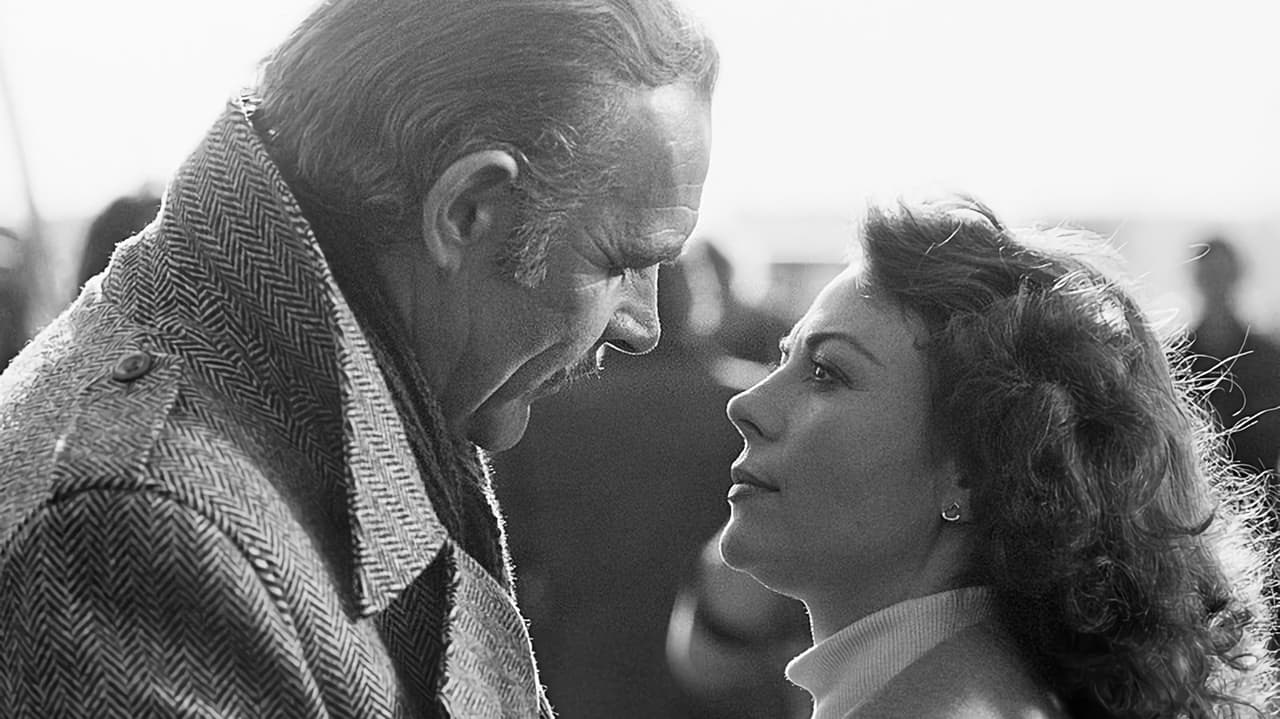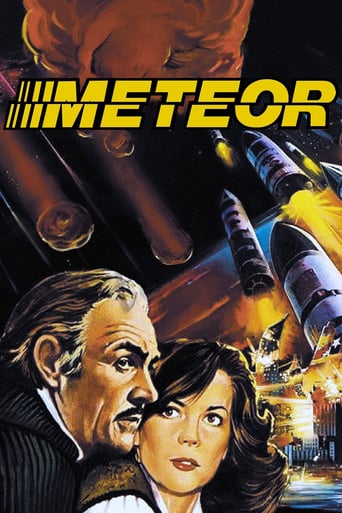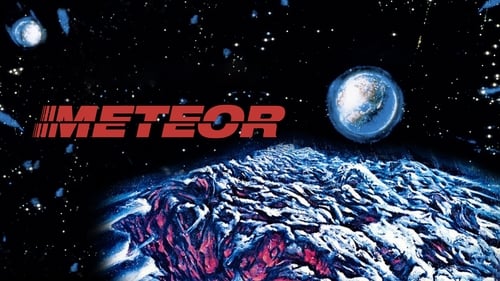



Well Deserved Praise
just watch it!
It's funny, it's tense, it features two great performances from two actors and the director expertly creates a web of odd tension where you actually don't know what is happening for the majority of the run time.
View MoreMostly, the movie is committed to the value of a good time.
View MoreGotta love these 1970's disaster films! The deadpan dialogue. The soap opera sub-plots. The missiles look like they were made from Revell model kits. But "Meteor" still delivers the goods and keeps you entertained. Far more so than some other "big-budget" films in the same category today. The A-list actors seem to enjoy being in this film. Also Brian Keith's and Natalie Wood's authentic Russian dialogue gives a legitimacy to the story line. "Armageddon" may have had 20x the budget, but it didn't deliver even 1/10th the entertainment as this film!
View MoreA giant meteor races through space on a collision course with Earth. It's up to a team of scientists led by the crabby Dr. Paul Bradley (Sean Connery at his most gruff and cranky) to figure out a way to stop it before it's too late.Director Ronald Neame treats the pretty silly premise with utmost seriousness and relates the engrossing story at a brisk pace. The compact script by Stanley Mann and Edmund H. North keeps the soapy subplots to a refreshing bare minimum. The big name cast adds immensely to this film's overall entertainment value: Karl Malden does well as no-nonsense project leader Howard Sherwood, Natalie Wood looks positively ravishing as fetching Russian interpreter Tatiana, Brian Keith contributes an engaging performance as the amiable Dr. Dubov, and Martin Landau provides gut-busting unintentional comic relief by screaming almost all of his lines as the irate General Adlon, plus there's sturdy work from Trevor Howard as British boffin Sir Michael Hughes, Henry Fonda as an aged president, Richard Dysart as the Secretary of Defense, Joseph Campenella as the stalwart General Easton, and Bo Brundin as hearty chief technician Rolf Manheim. Sybil Danning pops up in a small role as an ill-fated Swiss skier. The shoddy (not so) special effects possess a certain endearingly tacky charm, with a set piece involving a bunch of folks getting soaked with what appears to be chocolate milk rating as an absolute sidesplitting hoot. Paul Lohmann's crisp cinematography makes neat use of the widescreen format. Laurence Rosenthal's robust bombastic score hits the rousing spot. A fun flick.
View MoreMeteor probably gets all its points on IMDb because it has somehow lured a number of very high-profile actors into it - certainly not for the story or its portrayal thereof! Most of the errors are already listed under the Goofs section of the IMDb listing so I won't repeat them here other than to say there are a LOT! The credits list several technical advisers for the movie who should - in fact, WOULD - have been acutely aware of the errors and yet they either obviously ignored them (in which case, they shouldn't have got paid) or the director chose to ignore advice.The story could have been good because the likelihood of Earth suffering a major asteroid strike is actually very real - although such a strike would be much less likely to come from the main asteroid belt (between Mars and Jupiter) than from an "Earth- Crosser" or NEO (Near earth Asteroid) which share their orbits with Earth and occasionally, as the name suggests, cross the path of Earth. One such major asteroid is 2004MN4, only discovered in 2004 and named Apophis, which could possibly strike the Earth in 2036 with devastating consequences because it is about 330 metres across and, depending on whether a strike was oceanic (73% chance) or terrestrial, destruction would either be by an enormous global tsunami or a "nuclear winter" following impact.Given the fact that we already know about Apophis (and other asteroids) humanity has plenty of time to prepare something like what was used (although that wasn't the plan) in the movie.Natalie Wood was given a great opportunity to demonstrate her native language as the interpreter to a Russian scientist played by Brian Kieth who collaborates with his American counterpart played by Sean Connery with Karl Malden and Martin Landau putting in professional performances in spite of a fairly "ordinary" script along with cameos by Henry Fonda as the American president and Trevor Howard as the British space boffin.If you're not very conversant with basic space exploration and won't notice all the errors, I guess this might be mildly enjoyable but don't expect much!
View MoreMany have speculated that the dinosaurs that once ruled the planet were wiped out when a planetary body made contact with Earth sixty-five million years ago. And every once in a while in cinematic history, filmmakers have exploited this particular fear that similar collision between our planet and either a comet or meteor could do cataclysmic, end-of-the-world type damage to our planet, as was shown in films such as 1933's DELUGE and 1951's WHEN WORLDS COLLIDE, and which would be shown yet again in 1998's Armageddon and DEEP IMPACT. The first real film in our present context to show what might very well happen in the admittedly unlikely event of such an interstellar collision was the 1979 science fiction/disaster film METEOR.In this film, scientists have discovered a five mile-wide meteor named Orpheus, which was blasted out of the asteroid belt that lies between Mars and Jupiter by a collision with a comet. An American space crew exploring the asteroid belt is killed in that collision; and what scientists discover next is that the resulting asteroid that was knocked out of its orbit is on a direct collision course with Earth—a collision that, in the words of a prominent astronomer (Sean Connery), could create another Ice Age. The only hope anyone has of stopping Orpheus from penetrating Earth's atmosphere is to blast it with nuclear weapons; and while both the U.S. and Russia have such weapons in orbit, they are pointed downward at one another. Over the strenuous objections of a virulent anti-Communist general (Martin Landau), Connery and NASA's chief (Karl Malden), together with Connery's Russian counterpart (Brian Keith) manage to get both American and Russian nuclear arsenals pointed away from Earth, and towards the approaching meteor. In the meantime, however, splinter pieces of Orpheus do manage to penetrate the atmosphere. One causes a massive avalanche that buries a ski resort; another creates a 100 foot-high tsunami that wipes out Hong Kong; and a third, much larger piece nails New York City, creating a horrific situation in which Connery, Malden, Keith, and Keith's assistant (Wood) must crawl out of their underground tomb, through a muddy subway tunnel, and hope that their nuclear gambit succeeds.Released in late 1979 at the very tail end of the disaster film craze, METEOR did only moderately well at the box office, and, unsurprisingly, was almost universally panned by the critics. Furthermore, given its having been made under the auspices of the low-budget American International Pictures company, it clearly relies just a bit too much on the use of stock footage (specifically from previous films like AVALANCHE and TIDAL WAVE) instead of new special effects (in this respect, DEEP IMPACT is clearly the superior "space rock" movie). And in terms of acting, METEOR falls a bit short there too, especially in the overzealous performance of Landau, normally a very good actor, and a melodramatic script that occasionally veers uncomfortably close to unintentional humor.In other aspects, though Meteor does manage to overcome its pratfalls, due to solid performances by Connery, Malden, Fonda (as the President), Richard Dysart, Joseph Campanella, Bibi Besch, Sybil Danning, and Michael Zaslow. And where there is no stock footage used, the destruction sequences supervised by Glen Robinson, who had won an Oscar for his work on the 1974 science fiction/disaster film EARTHQUAKE, are about as good as anything seen in the days before CGI, especially in the near-total destruction of New York, even though, in retrospect, one is reminded too much of the immediate aftermath of 9/11 in those images. As a result, though it is a forgotten relic from a less-than-sophisticated era in science fiction and special effects, METEOR, under the professional direction of Neame (who helmed THE POSEIDON ADVENTURE for "disaster master" Irwin Allen in 1972), is nevertheless and entertaining, if somewhat dreadful look at what could possibly happen to Earth if a wayward interstellar body, be it a meteor or a comet, ever got past our protective atmosphere. For all its pratfalls, and despite its being a product of the Cold War in its plotting, its essential theme remains timeless and timely.
View More